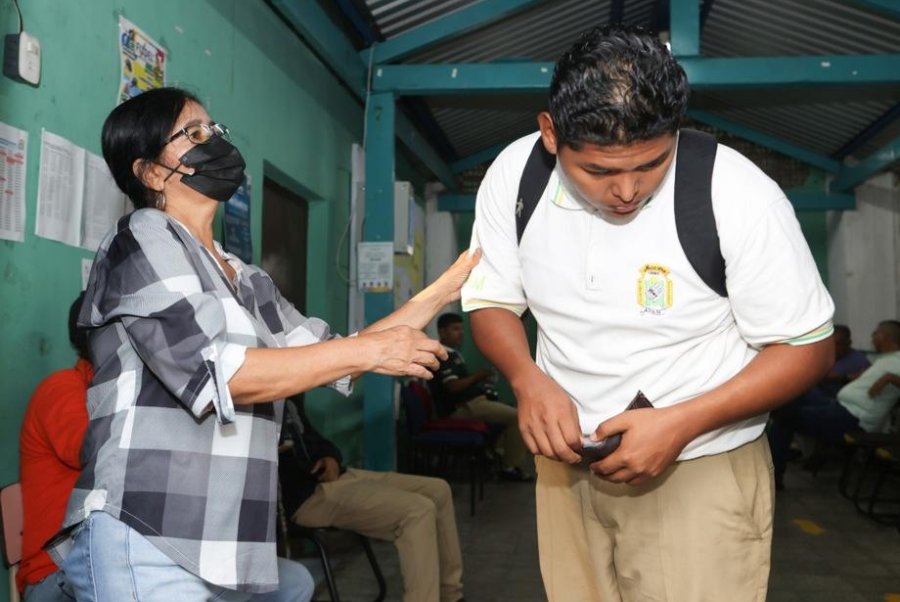Oct. 7 (UPI) — President Nayib Bukele has ordered a ban on the use of “inclusive language” in all public schools in El Salvador, citing the defense of the Spanish language and the protection of children from “external ideologies.”
“As of today, the so-called ‘inclusive language’ is prohibited in all public educational centers in our country,” Bukele said on X.
Education Minister Karla Trigueros backed the measure, saying it seeks to “guarantee the proper use of our language in all materials and content, as well as protect early childhood and adolescence from ideological interference that affects their development.”
According to official memos, words such as amigue, compañere, niñe, todos y todas, alumn@, jóvenxs, and nosotrxs” will not be allowed in public schools.
Language professor Raquel Galeano told UPI that inclusive language in Spanish is understood differently than in English.
“Unlike in English, in Spanish every word has a masculine or feminine gender. For example, niño is masculine and niña is feminine, or amigo and amiga. To include nonbinary people or speak in a more neutral way, some use words like niñe/niñx or amigue/amigux. These forms are meant to be more inclusive,” she said.
Trigueros, an Army captain appointed minister in August, has been criticized by teachers’ unions, which warned that her appointment amounts to the “militarization” of education.
Since taking office, the ministry has imposed stricter rules on school discipline, including requirements for clean and ironed uniforms, “appropriate” haircuts and daily checks of students’ appearance.
This is not the first time Bukele has addressed the issue. In 2024, he ordered the removal of gender perspective from public education, saying he would not allow “those ideologies in schools and colleges.”
The Education Ministry confirmed it would enforce the measure by “eliminating all traces of gender ideology” from official programs.
The decree is part of a package of education policies the government describes as an effort to “restore discipline and traditional values” in classrooms.
In recent months, the ministry has also tightened control over uniforms, schedules and student behavior.
El Salvador joins other countries in the region, including Argentina and Peru, where inclusive language has been restricted in public institutions.
While supporters of the measure call it a “defense of the language,” scholars warn that linguistic censorship could limit cultural freedom and the debate over gender identity in Latin America.

